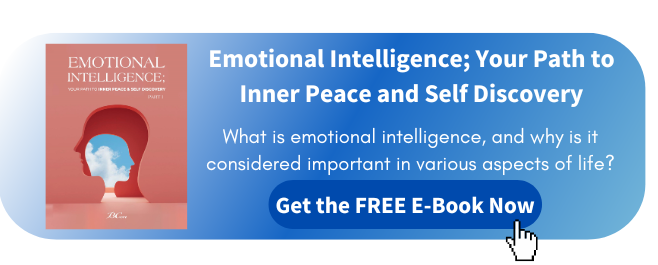Self-Awareness: Where It All Starts
I'm not a tree, I can move!
According to Margaret Andrews, instructor of the "Emotional Intelligence in Leadership" program from Harvard University, Emotional intelligence is a person's ability to influence others and establish relationships, which is crucial for success in their profession regardless of where they are positioned within an organizational structure. In addition, studies show that persons with higher Emotional Intelligence are more creative and like their jobs more than those with lower Emotional intelligence.
EI may be built, improved, and learned. Therefore, if you're not satisfied with your Emotional intelligence scores or the feedback you received, you might work on pushing yourself out of the behaviors that got you there. You're not a tree!
Self-Awareness: Where It All Starts
When developing and improving self-awareness, we encompass three dimensions1:
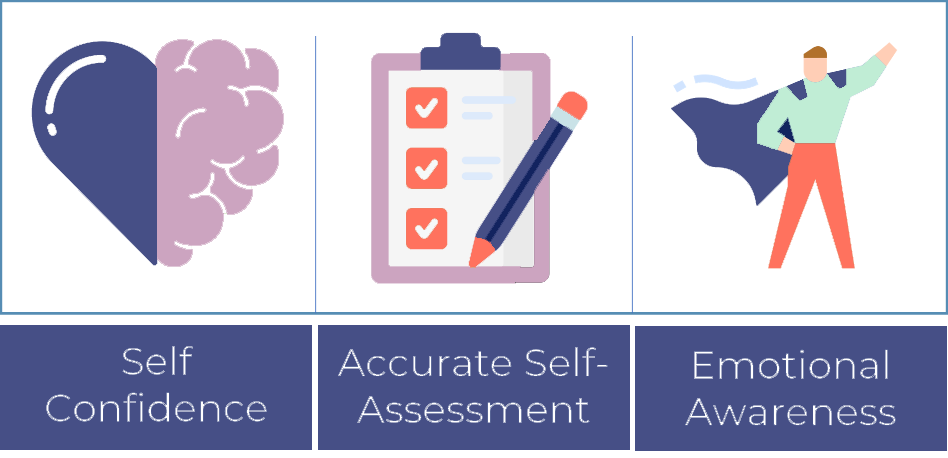
Emotional Awareness
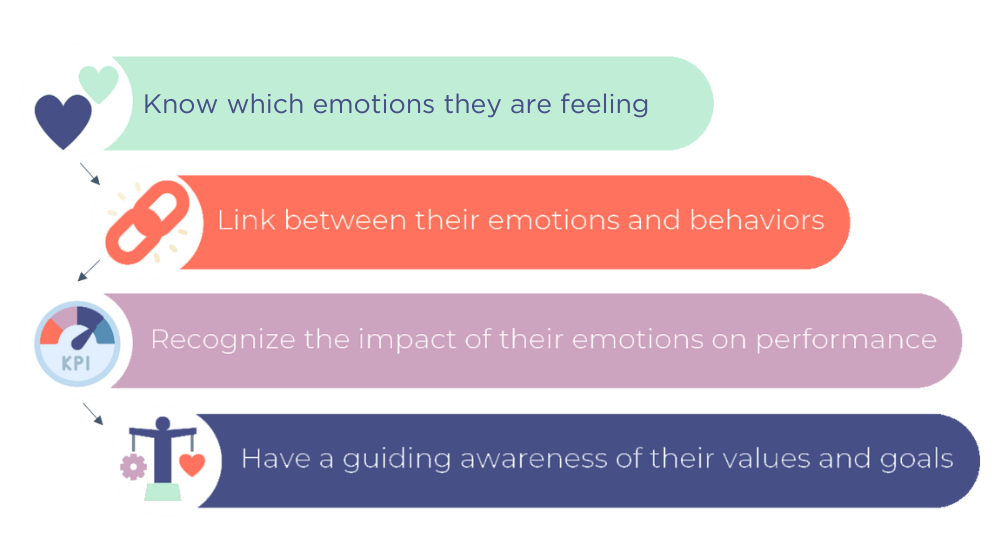
Emotionally intelligent people have a high level of awareness of their own emotions, particularly negative ones like melancholy or irritation. They can recognize and comprehend their feelings, and being able to name an emotion helps manage it. Because of this, emotionally intelligent people are realistic about themselves and have a high sense of self-worth. This capacity also helps in tuning in to how others feel. Thus, emotionally intelligent people have the ability to empathize.
Do a continuous emotional check-in and ask yourself several times within the day: How am I feeling right now?
This will help you familiarize yourself with the different types of emotions and help you understand yourself more, your triggers, and what satisfies you.
Name three emotions you are feeling right now by using the wheel below.
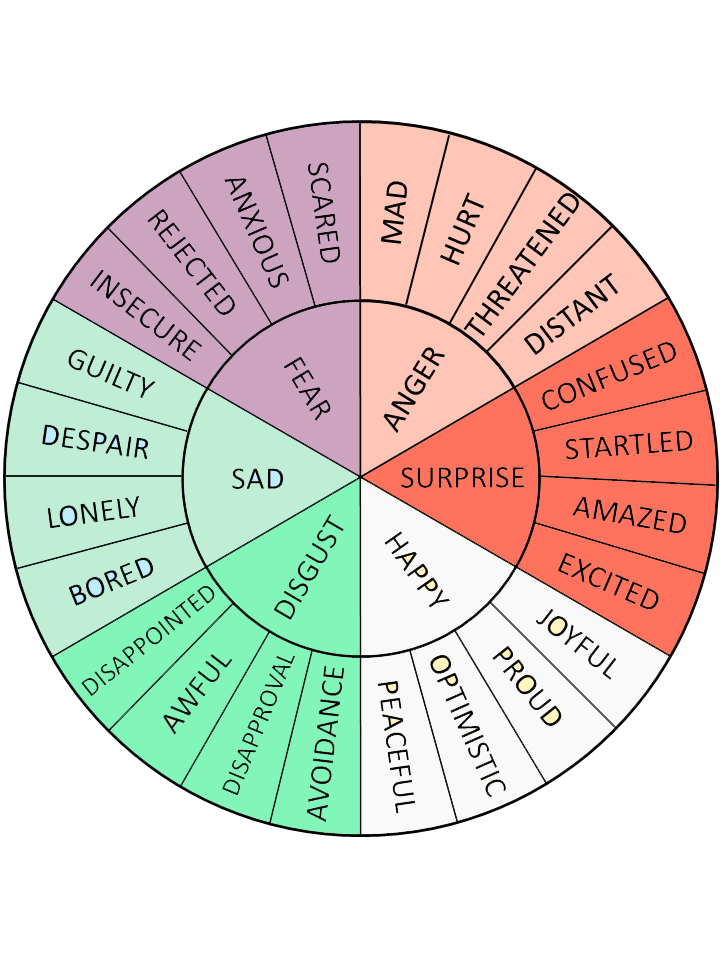
Accurate Self-Assessment
Self-awareness is knowing your weaknesses, strengths, potential, feelings, thoughts, and motivations. It seems easy enough, but according to a poll conducted by the organizational consulting firm Korn Ferry, 79% of CEOs had at least one blind spot or strength that was perceived as a problem by others.
Leaders skilled at identifying and controlling their emotions are better able to understand the emotions of others and have a better grasp of employee motivation. Those who don't risk having their performance suffer: According to research published in the Harvard Business Review, teams with members who lack self-awareness make poor decisions and manage conflicts less effectively.
By owning up to your shortcomings, you may encourage open communication and trust within your team. By being aware of the areas in which you must excel to enhance your career, you can also take control of your professional development.2
Moreover, aligning your actions to your values helps you feel more grounded in yourself and enables you to reflect on your true self, which in turn helps you to show a real deep presence. Values help you achieve clarity and act as a compass that helps with your decision-making. How to know your real values? There are several ways to do this, one of them is through self-reflection, another is through a life coach, and a third one is using the values list below and following the instructions. We suggest using at least two methodologies of those.
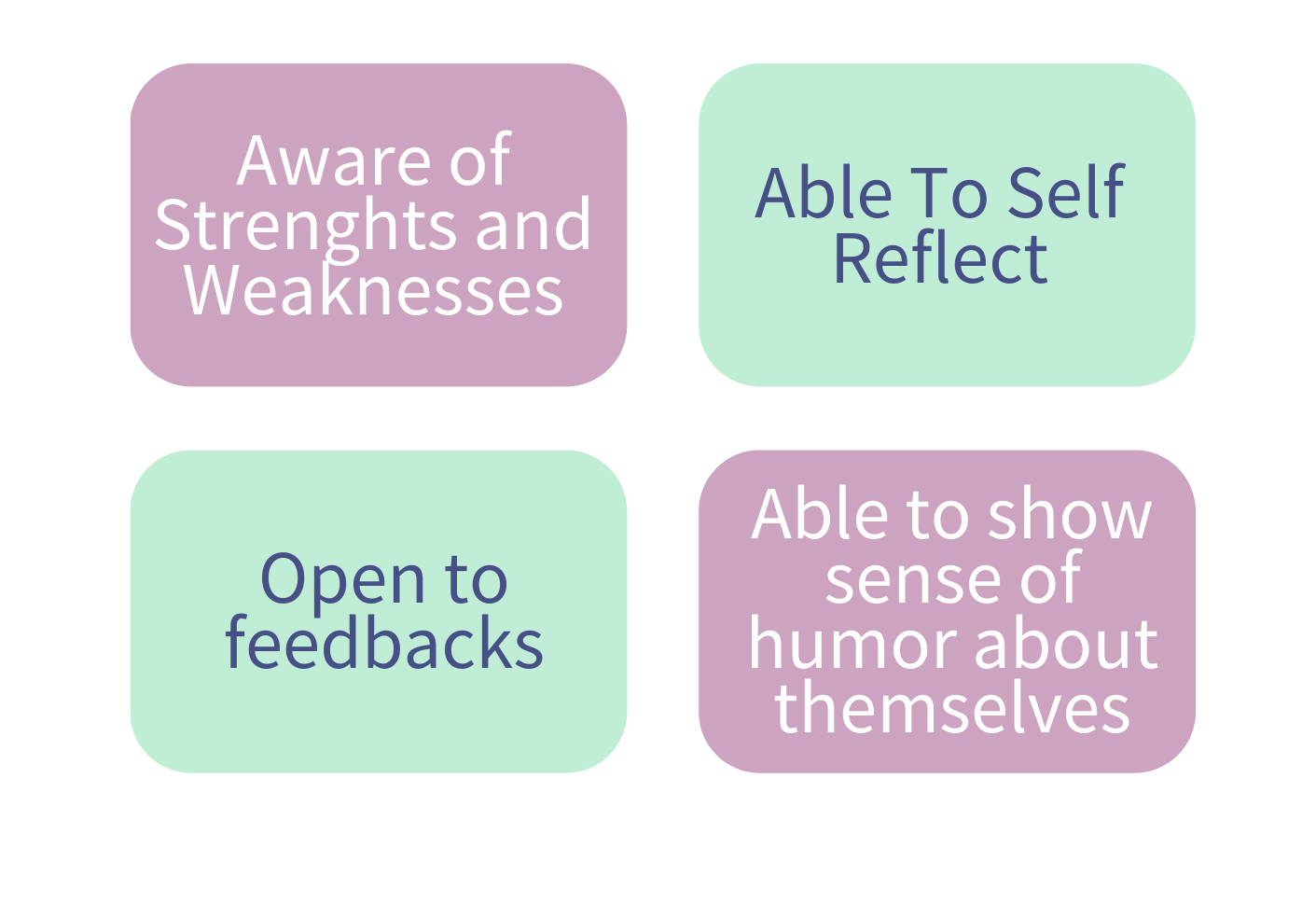
Wrap Up Self-Awareness3
- Understand the difference between thoughts and feelings
- Ask yourself how you're feeling during the day, and be honest
- Be open to input from others
(Download the "Personal Values Exercise" and "Personal Action Plan" worksheet to help you using the form at the bottom of this page)
1Daniel Golman, Working with Emotional Intelligence
2 HBR, 23 Oct 2019, Lauren Landry, EMOTIONAL INTELLIGENCE SKILLS: WHAT THEY ARE & HOW TO DEVELOP THEM, Accessed 23 Jan 2023, https://online.hbs.edu/blog/post/emotional-intelligence-skills
3Daniel Goleman, Working with Emotional Intelligence
For more about this topic, download our latest book " Emotional Intelligence: Your Path to Inner Peace and Self Discovery" for FREE:
